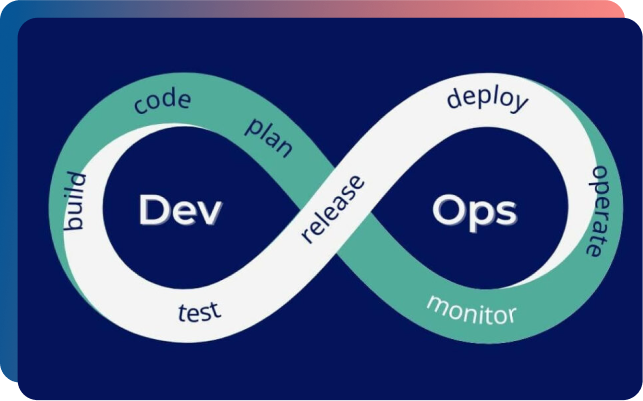Devops
DevOps

DevOps software development unites development and operations to optimize workflows, foster collaboration, and deliver high-quality solutions with greater efficiency. This approach improves coordination between teams, reduces manual errors, and accelerates the delivery process.
By focusing on continuous integration and automation, DevOps facilitates faster software updates, improves performance monitoring, and enhances teamwork. The adoption of CI/CD practices allows for rapid testing, consistent releases, and seamless deployment, helping organizations stay agile and maintain a competitive advantage in a rapidly changing digital landscape.

Improving workflows to accelerate and optimize software delivery.

Facilitating seamless team collaboration with integrated DevOps practices.

Speeding up development with automation and continuous integration.

Delivering top-notch software solutions through efficient, streamlined processes.

Enabling faster innovation with agile DevOps methodologies.

Maximizing software development efficiency through DevOps-driven strategies.

Unifying development and operations for smooth, continuous delivery.

Promoting ongoing progress with automated DevOps solutions.
DevOps development services streamline the integration of development and operations teams, ensuring faster and more reliable software delivery. Tools like Jenkins and GitHub support version control and continuous integration, making code management seamless. Additionally, Docker and Kubernetes enable consistent application deployment through containerization and orchestration.
Infrastructure automation is enhanced with tools such as Ansible and Terraform, reducing errors and boosting scalability. Monitoring and performance tracking are made efficient with Prometheus, Grafana, and the ELK Stack. CI/CD tools like CircleCI and GitLab enable rapid testing and deployment, ensuring high-quality outcomes and adaptability to market demands.


Streamlining development and operations for seamless collaboration and delivery.

Driving efficiency through automation and continuous integration practices.

Fostering adaptability with a focus on continuous improvement and innovation.
Advantages of DevOps

Faster Delivery: DevOps accelerates the software development lifecycle, ensuring quicker deployment of updates and new features.

Improved Collaboration: It fosters better communication between development and operations teams, enhancing efficiency and reducing silos.

Enhanced Quality: Continuous integration and automated testing help identify and resolve issues early, ensuring high-quality outcomes.

Increased Scalability: DevOps practices make it easier to scale applications and infrastructure to meet growing business demands.

Cost Efficiency: Automation and streamlined workflows reduce manual effort, minimizing operational costs.

Greater Flexibility: It enables organizations to adapt quickly to changing market needs and technological advancements.

